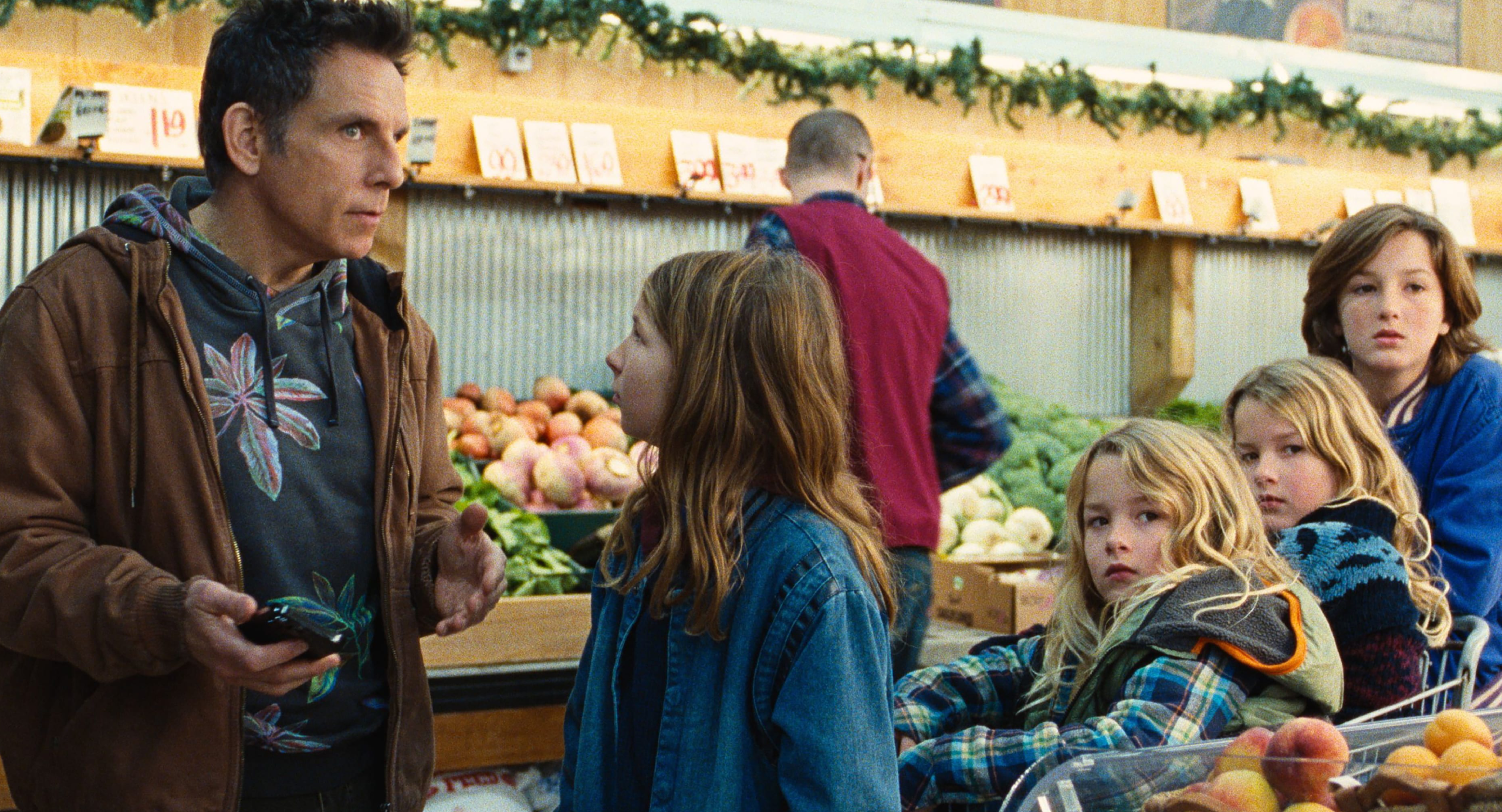Nutcrackers – Film Review
Published November 29, 2024

David Gordon Green’s Nutcrackers, a comedy-drama starring Ben Stiller, attempts to combine heartfelt family bonding with sharp humor but ultimately fails to deliver on either front. While Stiller’s talent as a seasoned actor brings occasional moments of levity, the film struggles under the weight of a thin script, uneven tone, and clichéd storytelling. Directed by Green, who is better known for genre experimentation (Pineapple Express, Halloween reboot series), and written by Leland Douglas, Nutcrackers plays it safe, leaving audiences with a forgettable, disjointed experience.
The story centers on Michael “Mike” Maxwell (Stiller), a workaholic marketing executive whose life revolves around his demanding corporate job. Forced out of his comfort zone, Mike reluctantly travels to a small town in Ohio to take care of his recently orphaned nephews after their parents’ untimely death. Mike, utterly out of touch with the needs of the two boys, finds himself clashing with their routines, rural life, and his estranged sister-in-law Gretchen (Linda Cardellini).
The film attempts to portray Mike’s journey from an emotionally distant professional to a compassionate father figure. Along the way, he discovers that his nephews’ late parents left behind a series of peculiar holiday traditions centered on an elaborate collection of nutcrackers, forming the basis of the film’s title and supposed thematic core.
Stiller’s performance is the film’s saving grace. As Mike, he captures the exasperation of a man whose meticulously organized life is turned upside down. His comedic timing brings some life to the otherwise bland screenplay, particularly during scenes where his urbanite persona clashes with the rustic charm of rural Ohio. Whether it’s fumbling through a farm chore or awkwardly interacting with the locals, Stiller leans into physical comedy and deadpan humor, creating some genuinely funny moments.
However, even Stiller’s efforts can’t rescue a character arc that feels forced and predictable. Mike’s transformation from a self-absorbed workaholic to a devoted guardian lacks depth. The film tells us he’s changing, but it rarely shows us why his newfound familial bond feels earned. Stiller does his best with the material, but the emotional beats often fall flat due to poor writing.
Linda Cardellini as Gretchen provides a strong foil to Mike’s brash, career-focused persona. Her grounded performance offers glimpses of the film’s potential to deliver authentic emotional depth. However, her character is underwritten and relegated to a supporting role that mainly serves to push Mike’s journey forward.
Gretchen’s interactions with Mike are among the film’s better moments, showcasing Cardellini’s ability to balance warmth and frustration. Unfortunately, the screenplay fails to develop her backstory or motivations, leaving her as little more than a plot device.
The tonal inconsistency of Nutcrackers is its most glaring issue. The film oscillates between zany comedic set pieces and overly sentimental drama, failing to strike a cohesive balance. One moment, Mike is engaged in slapstick antics involving a misbehaving goat, and the next, the narrative abruptly shifts to a tearful conversation about grief and loss. These tonal shifts undermine the emotional resonance of the story, leaving the audience unsure whether to laugh or empathize.
Additionally, much of the humor feels dated and uninspired. A recurring gag involving the nutcrackers as symbols of the nephews’ quirky coping mechanisms starts strong but is overused to the point of tedium. The script’s attempts at deeper, more poignant themes—like the impact of grief on children and the value of family—are overshadowed by its reliance on cheap laughs and contrived scenarios.
Green’s direction, while competent, lacks the visual flair or ingenuity that could have elevated the material. The small-town setting is depicted with a generic, postcard-like aesthetic that never feels truly lived-in. While some scenes effectively capture the warmth of a Midwestern holiday season, others come across as overly polished or blandly lit, diminishing the film’s sense of place.
The nephews, who should be central to the story, are disappointingly one-dimensional. Their personalities are reduced to generic tropes. The film never explores their grief or individuality in any meaningful way, leaving them feeling like props in Mike’s story rather than fully realized characters.
While the interactions between Mike and his nephews occasionally hit emotional notes, these moments are few and far between. The lack of chemistry and development among the trio makes it difficult for the audience to invest in their journey.
At its core, Nutcrackers wants to explore themes of family, grief, and personal growth, but it barely scratches the surface. The titular nutcrackers, meant to symbolize the family’s unique traditions and resilience, are underutilized as a narrative device. Instead of serving as a meaningful metaphor, they become a quirky plot gimmick that never fully connects to the larger story.
The film hints at deeper issues, such as the challenges of modern parenthood and the pressures of careerism, but these ideas are abandoned in favor of broad humor and simplistic resolutions. As a result, the emotional payoff feels hollow and unearned.
Nutcrackers is a frustratingly uneven film that wastes its talented cast and promising premise. While Ben Stiller delivers moments of charm and humor, the weak script, tonal inconsistency, and lackluster character development undermine the film’s potential. Linda Cardellini and the supporting cast do their best to salvage the story, but they’re hamstrung by underwritten roles and clichéd plotting.
For a director like David Gordon Green, who has proven capable of blending genres in the past, Nutcrackers feels surprisingly uninspired. It’s neither funny enough to succeed as a comedy nor emotionally engaging enough to work as a drama. Instead, it lands in the unsatisfying middle ground of mediocrity.
